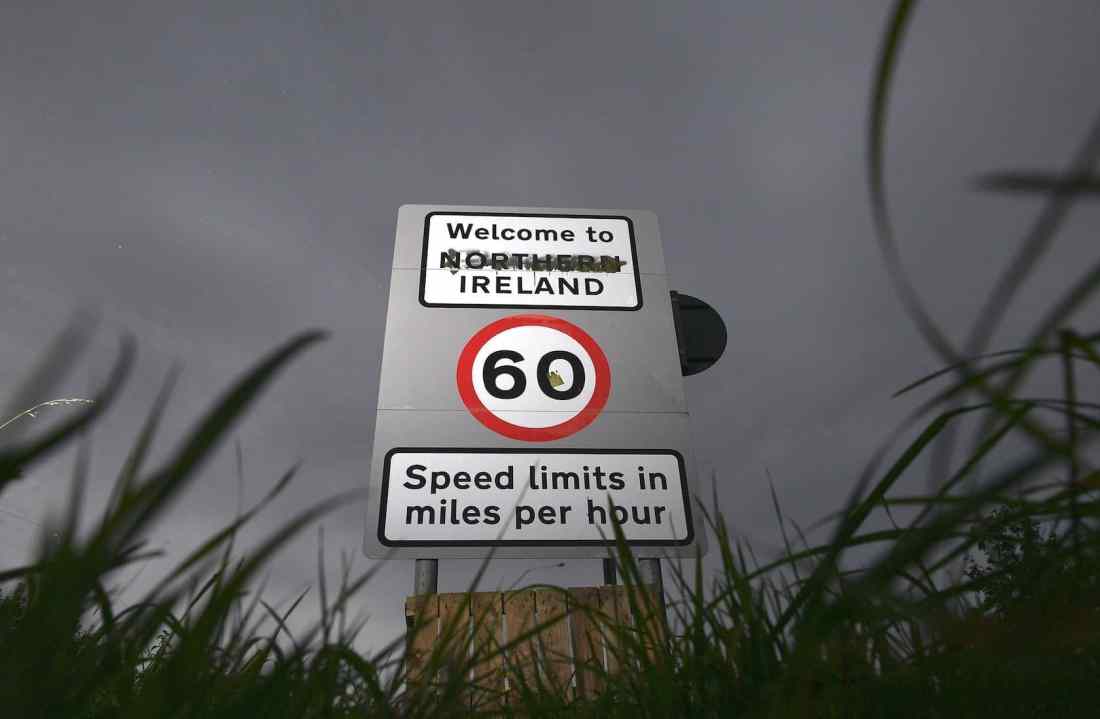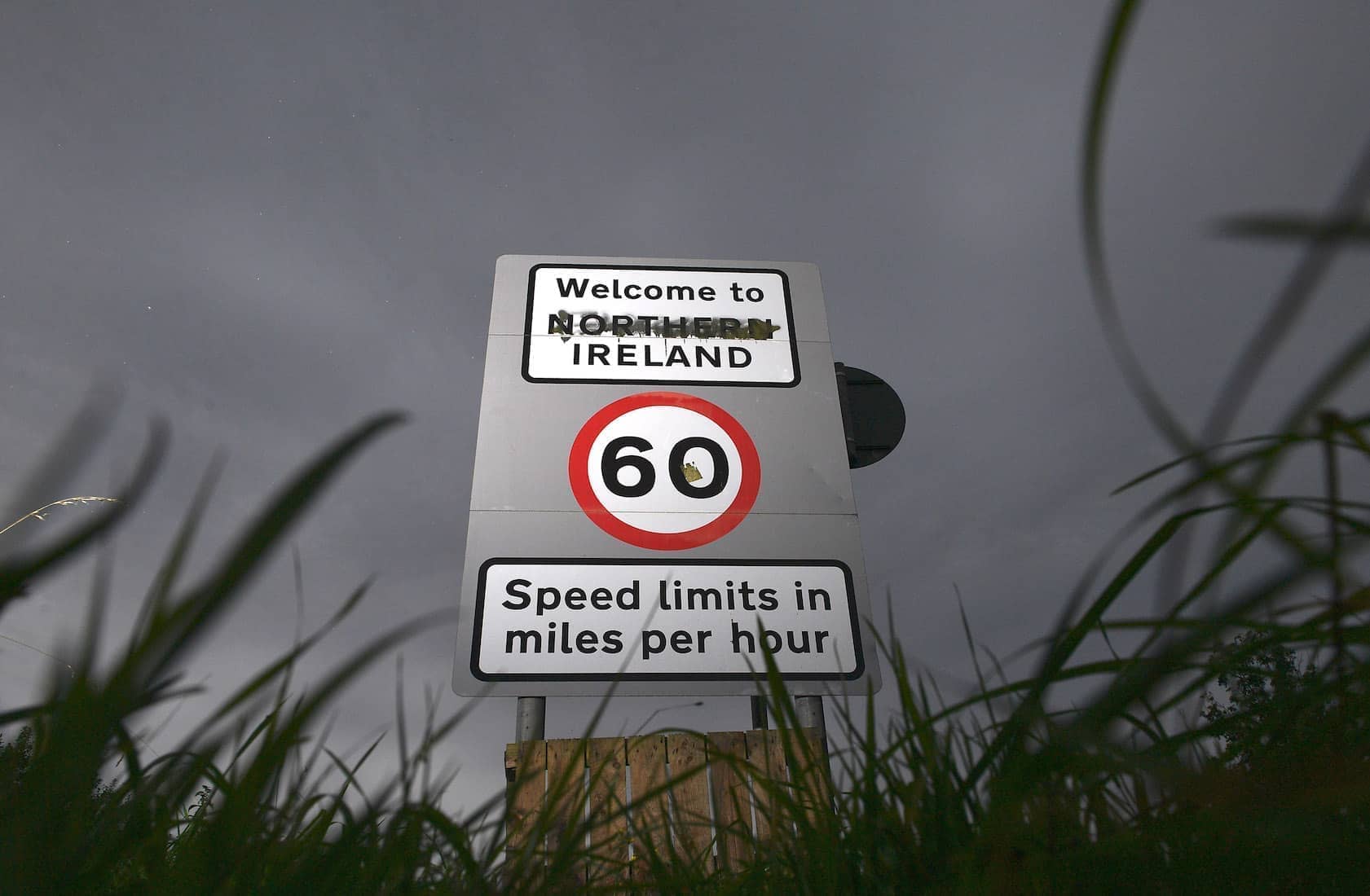Belfast, Northern Ireland
Phillip Brett was just nine years old the night a neighbour called to say his brother, Gavin, had been shot. Their father raced through the streets of their Belfast estate, arriving just in time to cradle his eldest son as he died. The teenager had been celebrating a friend’s birthday at the local Gaelic football club when he was gunned down by a loyalist gang looking for a Catholic to kill.
But they got it wrong – Gavin had been raised Protestant, their parents having married across the sectarian lines that once divided Northern Ireland, with friends from all sides of the mixed community they lived in. Standing as a candidate for the unionist DUP in next month’s assembly elections in Belfast, Brett says he got into politics ‘to ensure no family and no community has to go through what we went through’. Now though, two decades on, he fears the tension that led to his brother’s murder could once again return.
Those campaigning for the Union say their cause hasn’t been helped by politicians in Westminster
Over the past few years, the question of a border poll to determine whether Northern Ireland remains a part of the UK or joins a United Ireland has gone from a fringe pipe dream to one at the fore of political discussion. The nationalist party Sinn Fein is, for the first time, on course to win the most votes on 5 May, leading to widespread speculation that they could pursue a referendum on the future of the six counties. This would mean both Scotland and Northern Ireland would be led by parties intent on breaking up the UK.
In the run up to Good Friday, the anniversary of the 1998 peace agreement that put an end to the Troubles, Sinn Fein offered up a series of limited edition ‘Time for Unity’ Easter eggs, promoted by politicians like Gerry Adams. They sold out. Sinn Fein deny, however, that the issue is the defining one of their platform and have put everyday issues like stagnating pay and the stretched healthcare service at the heart of their campaign.
And yet, those campaigning for the Union say their cause hasn’t been helped by politicians in Westminster. According to Brett, the Northern Ireland Protocol has effectively imposed a border in the Irish Sea as a result of Britain voting to leave the EU:
For Boris Johnson, it was a solution that helped get Brexit done and delivered him a thumping majority in the House of Commons. But the British establishment is starting to realise it’s a disaster – we can’t get medicines in, costs have gone up by 30 per cent. People here assumed Johnson would act to right those wrongs, but Ukraine and partygate have distracted them from doing that. Now there’s this feeling that Northern Ireland has been treated very badly.
A poll, published earlier this month by the University of Liverpool’s Institute of Irish studies, found that as many as a third of voters would vote for a United Ireland if a border poll were held in the future. However, at the same time, even among those who wouldn’t, there is a deep sense of frustration at the realities of devolution – the regular collapses of power-sharing has left Stormont without an executive for a third of the 22 years since it was brought in. A clear majority told researchers that ‘if devolved politics worked better people would focus less on the constitutional question,’ and nearly 80 per cent say their politicians shouldn’t be paid if they refuse to work together to form an administration.
‘People think “I wouldn’t get paid if I didn’t turn up to work,” so why should well-salaried politicians,’ Stephen Donnelly, a candidate for the non-partisan Alliance party in West Tyrone says. ‘Brexit has upset the political realities here to the extent it has brought constitutional issues back into contention.’ While the DUP is campaigning on fears Sinn Fein could awaken the violence and sectarianism mostly frozen by the Good Friday Agreement, his party is trying to bring the conversation back to the cost of living and the failing healthcare system in their own right. Donnelly accepts, however, that his opponents are weaponising those concerns to question the very existence of Northern Ireland. ‘Many voices warned Brexit would result in divisions but the Tory party pursued it regardless,’ he adds.
Sinn Fein’s leader in the North, Michelle O’Neill, opened the party’s election campaign by warning it would be ‘the most important in a generation’. While the powers to call a border poll lie with Secretary of State Brandon Lewis, the Good Friday Agreement obliges him to do so ‘if at any time it appears likely to him that a majority of those voting would express a wish that Northern Ireland should cease to be part of the Kingdom and form part of a United Ireland’. A landmark victory for the Irish nationalists would likely be used by some to argue that that condition was close to being met. A BBC poll last year found that more than half of respondents on both sides of the border believe a United Ireland will be a reality within the next 25 years.
The risk of civil unrest as a result of such a shift cannot be dismissed. ‘People are frustrated,’ Brett worries, ‘but we’re trying to avoid violence by telling people they can get out and vote at this election and show their anger through the ballot box.’ Many feel politicians are failing them. We can only pray that they don’t fail the peace process too.








Comments